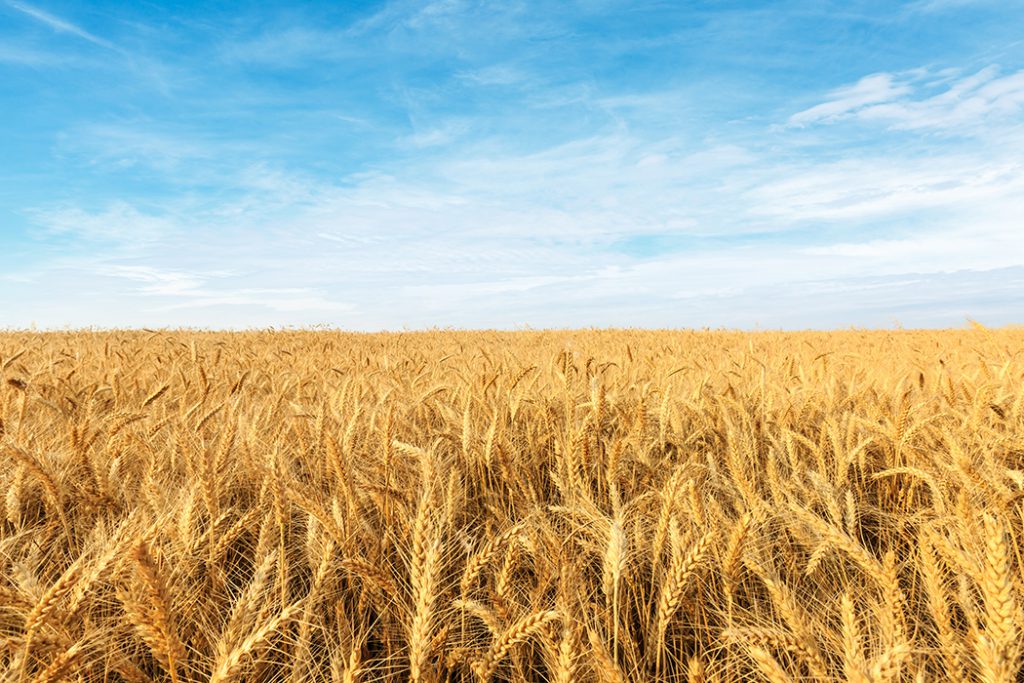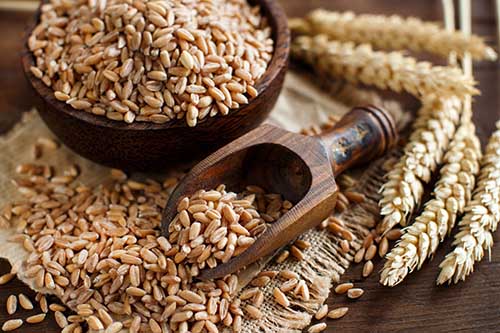April Fool’s Day – 5 grain myths debunked

April Fool’s Day pranks often reminds us of the fact that not everything you see, hear, or read is accurate. Sometimes the things that we learn about foods, and grains, do not come from a place that is backed by facts.
Grain Myth #1: Grains are bad for our health.
We have all heard either online or in magazines that grains are bad for our health and can negatively impact our digestive health. That is simply not the case for everyone! Individuals diagnosed with Celiac disease cannot properly digest the gluten protein that can be found in wheat and barley. Therefore, grains may not be good for those diagnosed with Celiac as it can cause their body to negatively overreact to the protein. However, only 1% of Canadians are diagnosed with Celiac disease.

Individuals who do not have difficulties digesting gluten may highly benefit from the consumption of grains, especially whole grains. In fact, the consumption of whole grains can be linked to a reduced risk of heart disease, obesity, type-2 diabetes, dementia and more. Whole grains can provide you with the energy and fuel to help you power through your day and build muscles.
To learn more about gluten-free vs diets that include whole grain read our Train with Grains Tip #7.
Grain Myth #2: GMOs are dangerous for human consumption and for the environment.
The safety of GMO is a topic that is often heavily debated, however, there is no scientific evidence that shows GMOs negatively impact our health or the health of our environment (CropLife Canada). Canola, corn, potatoes, soybeans, sugar beets and alfalfa are all GM crops that are grown right here in Canada. GM crops have been grown in Canada for over 23 years and there has not been a single case of illness attributed to the consumption of GMOs. Farmers in Ontario choose to grow GM crops because they help farmers reduce their land and water use, reduce their carbon footprints, and reduce how much pesticides they may need to use.
To learn more about GM crops and GMOs read the article “What does GMO mean?”
Grain Myth #3: Pesticides are dangerous.
Pesticides that are used on food crops often get bad reputations for being “unsafe for eating” or are “less healthy”. However, there is no scientific evidence that shows grains grown using pesticides or those that are grown without, have any safety or health/nutritious difference. In fact, there is no scientific evidence to show that there is a health risk from eating conventionally grown produce because of pesticide residues, or that organic foods are safer to eat than conventionally produced foods (Health Canada).

Pesticides are merely tools that are used by Ontario farmers to eliminate a threat or pest to protect the growing crop. Threats may come in the form of diseases, insects, or weeds; these threats can be detrimental to the health of the crop and could inhibit the quality of the grain. Without quality grains in the field, we wouldn’t have quality food in the grocery store.
To learn more about pesticide use in Ontario read our article “four things to know about pesticides and food.”
Grain Myth #4: Eating grains will make you fat.
There is a mass of misinformation regarding the consumption of grains and that the carbohydrates in grains will make you gain weight. The myth in this statement lies in the fact that refined grains are tied in with whole grains. Refined grains and whole grains are different because refined grains have been stripped of their germ and bran. Consuming the germ and bran can actually lower belly fat, thus, by eating whole grains you can actually lower belly fat. In a study done by researchers at the US National Library of Medicine it was concluded that the consumption of whole grains was linked to lower body mass; there are many other studies that have come up with this same result. We can then see that by switching to whole grain alternatives, while keeping the other aspects of your diet constant, could cause a weight reduction over time.
Grain Myth #5: Grains cause inflammation.
Have you heard the term grains cause inflammation? Whole grains turn into a form of sugar while they are being digested and sugar is known to cause inflammation and that is where this myth originated. Inflammation is known to be a large underlying factor in many different diseases. However, eating whole grains is not the cause of inflammation rather, it can be a solution to inflammation issues. It was found by researchers that increased consumption of whole grains can increase the good gut bacteria that actually works to fight inflammation (Nutrition Review). Grains can get a bad reputation, especially with the mass amounts of misinformation that is out there.
However, research and many health professionals recommend that choosing whole grains alternatives can help increase your overall health, and is a key component to a healthy balanced diet.
